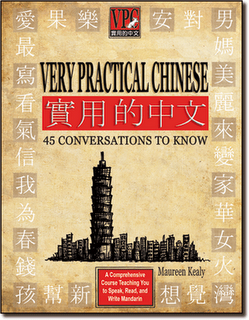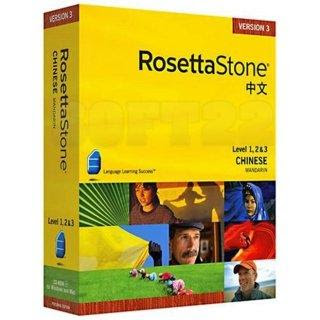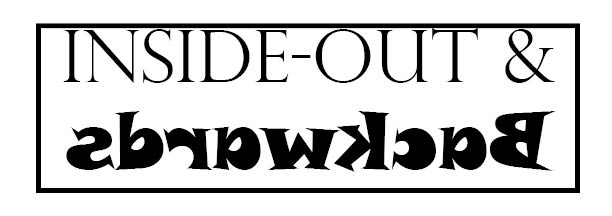
Tuesday, March 31, 2009
Guidebooks

Saturday, March 28, 2009
Elements of Effective Independent Language Learning

 Grammar study requires a guide or some kind of structured study method. I am going to spend the next week and a half researching independent grammar study and the texts that are available. I used the term "guide" instead of "text" because the best guide is living. Even a good grammar book speaks to us, in my case, in teh voice of a slight female Japanese doctor of language, or a missionary giving us tasks and methods to perform and gives us a structure and climate. Does this go against my claim of independent second language learning? I don't know, but I will keep posting my findings.
Grammar study requires a guide or some kind of structured study method. I am going to spend the next week and a half researching independent grammar study and the texts that are available. I used the term "guide" instead of "text" because the best guide is living. Even a good grammar book speaks to us, in my case, in teh voice of a slight female Japanese doctor of language, or a missionary giving us tasks and methods to perform and gives us a structure and climate. Does this go against my claim of independent second language learning? I don't know, but I will keep posting my findings.Tuesday, March 24, 2009
Choosing a Text

 you pinpoint the right developmental level.
you pinpoint the right developmental level. Saturday, March 21, 2009
Independent Study
I also finished a podcast project about my experience as a tutor for an ELL. I don't know if the program I am using supports Adobe Captivate, but it was fun to speak, write and think about my experience. I'll post it but please don't judge--it's in ist rough draft stages still. I also find another volunteering opportunity at a local elementary school. As a second language speaker there are so many opportunites to be useful. Here's my challenge--let's all find some way we can be of service to someone with our second language even if you're fairly new at it.
Wednesday, March 18, 2009
Grammar vs. Vocabulary
On the other hand, there are lots of instances where I feel that if I only knew more words how much better I would express myself. Vocabulary is fairly easy: as I find places where I struggle to find the right words or in a certain content area, domestic, academic, etc, where I wish I could communicate, I can easily make up lists and lists of wods I want to know. Grammar is a little trickier. However, one method might prove effective--translation. When I am trying to translate English into Japanese is where I realize the grammatical possibilities there are and teh ares where I am lacking. I have some excellent grammar dictionaries, as I've mentioned before, but the trick is to get it into a part of my functional speech. I guess there is the same challenge with vocabulary. In our native language we know so much more than we use everyday; however, we don't seem to lose words that we don't use often, do we? What effective ways of studying grammar are out there? Which should get the bulk of my attention and what kinds of things can I do to improve my fluency? I'll send that out into the blogoshpere for study.
Friday, March 13, 2009
Elements of Effective Independent Language Learning
Lately, I've been part of several conversations on strengthening language weaknesses. Most especially, I've been thinking about the role that self knowledge plays in developing as a second language learner. We all have bad little habits, and it's almost as if we want to cuddle them close. We like our weaknesses the way they are; we've grown accustomed to them and they no longer distress us. We fall into patterns that nurse our weaknesses and accentuate our strengths. Vocabulary memorization is a strength of mine, but grammar and fluency are much weaker, so instead of bolstering those very essential parts of language, I keep focus on how many words I can remember and how I wonder what each word means when I'm reading, still deciphering meaning from familiar words rather than a sentence and paragraph level understanding. My speaking skills also steadily deteriorate.
In my TESOL class, we talked about how a knowledge of our learning strengths and weaknesses can be found out through various diagnostic quizzes, maybe even some that show us whether we are right or left-brained, how confident and assertive we are, or how we respond to others. I always thought that it was okay to have these varying strengths and just know that you add yours to a group while someone else brings what they have. This is a sound way of thinking, however, as independent language learners we must constantly strive to do activities in our weak areas and self correct and self diagnose. It does sting a bit, but we will be better for our cross-training experiences. Has anyone ever had the experience where they were forced into a high stakes situation and found their weakness being made a strength? What helped and how did it happen?
If you would like to follow my blog and share what you know about language, follow the link on the right!
Tuesday, March 10, 2009
Reflections on Language Learning and Translation
As I finish my time as a tutor for an English as a Second Language Learner, I've been invited to think about what I would recommend for Riki's future progress. I tried to tell Riki when the time came for mentors to tell their students what goal or advice would benefit their writing. I advised that he find out what it is he wants to say in Japanese and use tools to find out how to express it in English. Many of my frustrations as a missionary over language weren't about what I thought they were about. Instead of the main problem being a command of the grammar or fluency or an extensive vocabulary, what I realized was that I didn't even know what I wanted to say in English. Once I sat down and wrote about what I felt in English and chose a few choice sentences to translate, answers to common questions, or explanations, I found that the work of translation had helped me internalize the language and still sound like myself. For example, I found that I needed to say 'instead of' and looked it up in Japanese so that my thought could be reborn in Japanese. I recommend a grammar dictionary to anyone who thinks this might be a good method. Vocabulary dictionaries might anticipate the words you want to say, but the relations of the words with each other also can be organized for searching.
Often, even in English we talk without knowing what it is we want to communicate. Also, hasn't everyone had impromptu moments in front of a crowd we want to impress or with a subject we think is above us and we find ourselves having difficulty conjugating verbs, even though it is our native language? If we think too much about verbs, forms, pronunciation, we are not focusing on what language was invented to do—to communicate. Translating for others can be a great facilitator of language development. We are focused on how to express one language in another and we come once again to the reason for language. What better environment for natural language use and acquisition?
Also, I wanted to send out a call for funny translating stories. A little language humor might enlighten and enliven us and how to best learn another language.
If you are interested in following this blog, adding to its content and watching for updates coming soon, please click on the icon in the top right column.
Saturday, March 7, 2009
Adapted Readings

Wednesday, March 4, 2009
Elements of Effective Independent Language Learning
I believe firmly that reading writing are two sides of the same coin so I surprised myself by separating the two. However, I found some marked differences between the two when put into practice. For example, when reading, as when listening, we can "get the gist" of things or kind of slide our way through, picking out the words we know, approximating and guessing at the meaning of words or grammatical forms and then respond to what we read without as much accountability as writing. Anyone who has attended school in a second language can attest that so many weaknesses and ignorances can be hidden or glossed over until we are required to write.
So reading provides a place for us to grow, a way to make discoveries. If we read often, our ability to use the language will grow as we make hypotheses about meaning and how our second language is working. We will also understand what kind of words are used where--an understanding of the nuances of the language. Consider this mistake in a student paper: A junior English student was writing about My Antonia and described a landscape with "undulating prairie dogs," meaning, of course, that the animals were constantly ducking in and out of their holes but someone who has read and understands the nuances of undulating and the context of prairie dogs would avoid that usage.
I learned something important for my own second language reading this past week. In my classes on teaching and in several textbooks, the consensus was that silent reading is preferable to reading out-loud and that reading is a primarily silent activity. This brought me up short becuase I assumed that somehow I was improving my pronunciation or fluency in reading by rading out loud. I just that it came first wehn reading. I tried the experiment of reading silently and found that it was true; I was making meaning more efficiently and completely by staying silent, though it took effort not to be a "word-caller" which in literacy circles is what we call someone, often a second language learner, who clips along merely making the sounds without retaining and comprehending as well as could be wished.
